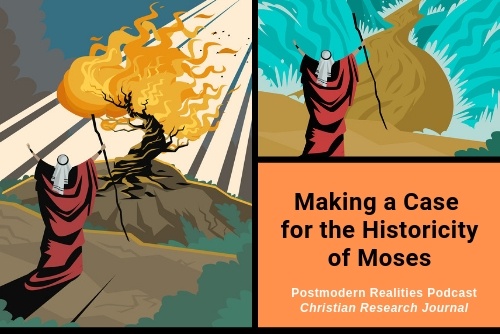The biblical depiction of Moses as an ancient leader par excellence, albeit a somewhat reluctant one, is wholly believable despite scholarly claims to the contrary. Some recent interpretations anachronistically analyze the historicity and leadership of Moses with little concern for comparative ancient data or context. One example compares him to George Washington, as a jack-of-all-trades leader, who is essentially “too good to be true.” For many scholars, Moses is a mythical figure whose life accounts are not historically reliable. They are quick to point out a perceived lack of substantiating archaeological evidence. As a result, they believe the search for the historical Moses to be futile.
This demonstrates two larger problems regarding scholarly treatments of Moses: (1) the failure to seek external, independent data from the ancient Near East and (2) a misunderstanding of the capabilities of archaeological data. While the Hebrew Bible remains the primary source for Moses’s life, comparisons to relevant ancient texts reveal that Moses, while extraordinary in many ways, was in fact a typical ancient leader. Close examination of the biblical accounts of Moses’s life reveals parallels from both Egypt and the broader ancient Near East. Such ancient data provides the only suitable and useful comparisons.
From his allegedly legendary birth to his upbringing in Pharaoh’s palace, Moses was well suited to the role Yahweh assigned to him. The covenant Moses helped establish between his people and Yahweh has parallels from other ancient civilizations. He was an ancient leader through and through; attempts to reinvent him to fit modern conceptions reveal modern mentalities, not the historical Moses.
This Postmodern Realities episode is a conversation with Journal author Mark D. Janzen about his Volume 42, No. 1 feature article, “Making a Case for the Historicity of Moses.”
We’d also like to invite you to subscribe to the Journal. To subscribe to the Journal, please click here.
When you to subscribe to the Journal, you join the team of print subscribers whose paid subscriptions help provide the resources at equip.org that minister to people worldwide. These resources include our free online-exclusive articles, such as this review, as well as our free Postmodern Realities podcast.
Another way you can support keeping our resources free is by leaving us a tip. A tip is just a small amount, like $3 or $5, which is the cost for some of a latte, lunch out, or coffee drink. To leave a tip, click here.
Other related articles:
Death of Moses in Deut. 34 and Authorship
Was There A Jewish Temple in Ancient Jerusalem? Exposing Islamic Ahistoricism and Mythicism
The Jewish Talmud And Its Use For Christian Apologetics
Historical Artifacts and Biblical Sources: Determining What Is True
Bible Reliability: M-A-P-S to Guide You through Bible Reliability
Biblical Archaeology: Factual Evidence to Support the Historicity of the Bible
Biblical History: The Faulty Criticism of Biblical Historicity
